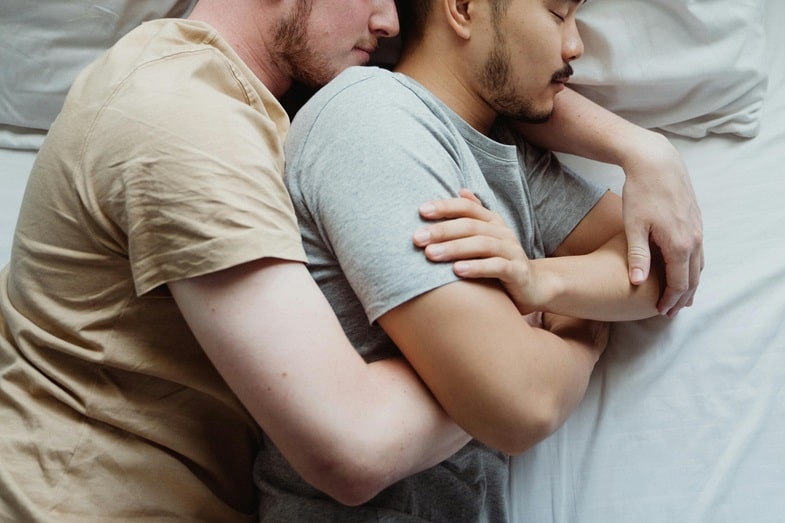Published on: 07/02/2025
The use of cannabis for therapeutic purposes has become a topic of great interest for both the scientific community and consumers seeking natural remedies
Among its various applications, the treatment of sleep disorders is one of the areas that has garnered significant attention. Disorders such as insomnia, difficulty maintaining sleep, or frequent awakenings can have a profound impact on quality of life. Cannabis, thanks to its unique components, presents itself as a potential ally in the pursuit of more restful sleep.
The Relationship Between Cannabis and Sleep
Cannabis is composed of over 100 cannabinoids, chemical compounds that interact with the endocannabinoid system in our body. This system plays a crucial role in maintaining homeostasis, influencing functions such as mood, appetite, pain, and, of course, sleep. Among the primary cannabinoids, THC (tetrahydrocannabinol) and CBD (cannabidiol) are the most studied for their effects on sleep.
THC is known for its psychoactive and sedative effects, which can facilitate falling asleep. However, excessive or prolonged use may interfere with overall sleep quality by reducing the REM phase, which is essential for memory consolidation and mental restoration. CBD, on the other hand, is non-psychoactive and appears to have a relaxing and anxiolytic effect, promoting deeper and more restorative sleep without significantly altering the sleep cycle phases.
The Science Behind Cannabis Use for Sleep
Various studies have analyzed the effects of cannabis on sleep disorders, showing promising results. Research published in the Journal of Clinical Sleep Medicine highlighted how CBD can help reduce anxiety, one of the primary causes of insomnia. Participants taking CBD reported a significant reduction in anxiety levels and an improvement in sleep quality.
Another study demonstrated that THC could shorten the time required to fall asleep, especially for those suffering from chronic insomnia. However, it is important to note that the effect of THC varies greatly from person to person, and high doses may cause side effects such as vivid dreams or grogginess upon waking.
Read also: How to properly store cannabis seeds for the long term


Cannabis and Specific Sleep Disorders
While insomnia is the most common disorder, cannabis may also be useful for other sleep-related conditions. For example, patients with sleep apnea may benefit from cannabinoids, as some research suggests that THC could reduce the severity of apnea episodes.
For those suffering from Restless Legs Syndrome, characterized by involuntary movements that disrupt sleep, CBD has been shown to be effective in reducing symptom intensity. Additionally, cannabis could be beneficial for patients with post-traumatic stress disorder (PTSD), who often experience nightmares and night awakenings. CBD, in particular, seems to help decrease the frequency of nightmares, promoting a more peaceful sleep.
Benefits and Limitations of Therapeutic Cannabis Use
Using cannabis to improve sleep offers several benefits. First, it is a natural solution that can serve as a valid alternative to sedative medications, which are often associated with undesirable side effects or dependency. Moreover, cannabis can be personalized based on individual needs, with products varying in THC and CBD content.
However, it is essential to approach this topic with caution. Prolonged or improper use of cannabis can lead to dependency, tolerance, or alterations in the sleep cycle. Additionally, not everyone responds the same way to cannabinoids, and choosing the right product requires a thorough understanding of one’s needs and the composition of the cannabis being used.
Read also: How to avoid and manage overcrowding in Cannabis Cultivation


How to Choose the Right Product
For those interested in trying cannabis as a remedy for sleep disorders, it is crucial to start with a high-quality product, preferably purchased from authorized retailers. The choice between indica, sativa, or hybrid strains depends on the desired effects: indica strains are generally considered more relaxing and suitable for sleep, while sativa strains can be more stimulating.
The method of consumption also affects effectiveness. CBD oils, for example, offer a more prolonged and consistent effect, while vaporization provides rapid relief but with a shorter duration. In any case, it is always advisable to start with low doses and gradually increase, monitoring the effects.
Conclusion
The use of cannabis for the treatment of sleep disorders represents an exciting frontier with largely unexplored potential. Although studies conducted so far are promising, it is essential to approach this remedy with awareness and under the supervision of experienced professionals. Cannabis is not a universal solution, but with responsible and targeted use, it can provide valuable support to those struggling daily with sleep disorders.
Investing in research and education on this topic is essential to ensure that more people can benefit from the therapeutic properties of cannabis, improving their quality of life in a natural and sustainable way.









